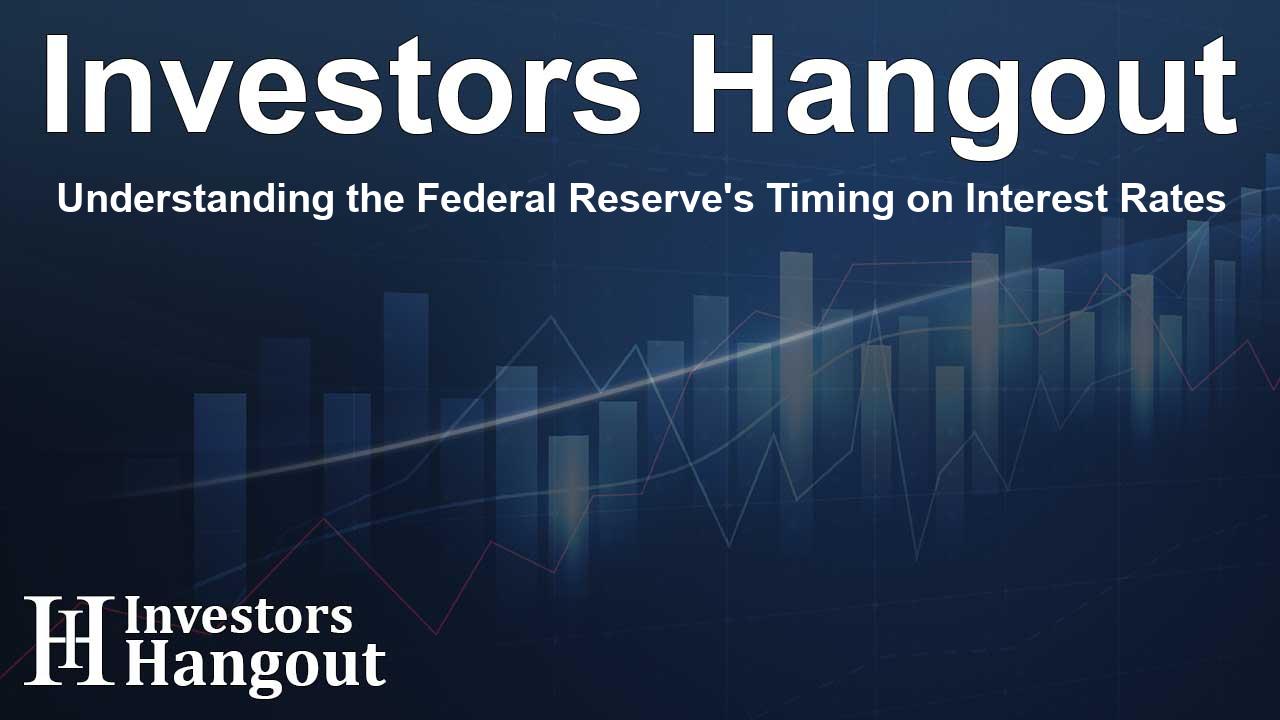Understanding the Federal Reserve's Timing on Interest Rates

Understanding the Federal Reserve's Role in the Economy
The Federal Reserve is crucial for maintaining economic stability, addressing challenges like inflation and employment rates. One of its main goals is to achieve price stability while also maximizing employment. However, the timing of its decisions, especially concerning interest rates, often sparks debate.
Was the Federal Reserve Slow to Respond?
Recent discussions about inflation have led many analysts and economists to conclude that the Federal Reserve was sluggish in tightening monetary policy and raising interest rates. This consensus largely revolves around the consequences of these decisions and their impact on the economy.
Assessing Employment and Monetary Policy
The Fed's dual mandate raises important questions about how to balance the fight against inflation with the need to maintain employment levels. While high inflation creates challenges, it’s also vital to consider how it affects job markets. For example, as newly employed individuals start spending on goods and services, inflation can rise, adding complexity to the Fed's strategy.
What If the Fed Had Taken Action Sooner?
Considering what might have happened if the Fed had acted sooner opens up interesting discussions. If the Fed had raised rates during its January 2022 meeting, when the unemployment rate stood at 4%, could it have curbed inflation more effectively? Similarly, thinking about earlier intervention in late 2021, when inflation began to climb, adds another layer to this analysis.
Current Landscape of Inflation and Employment
As the economy continues to change, current data reveals that while inflation rates have significantly decreased, employment remains a key focus for the Fed. Recent reports show that job growth continues, even with fluctuations in the unemployment rate. This variability highlights the need for monetary policy to adapt as conditions evolve.
The Broader Economic Context
The current economic environment indicates a delicate balance between controlling inflation and sustaining employment. Although inflation rates have fallen from their peaks, the job market shows resilience. Presently, there are record job openings alongside a stable employment rate, reflecting a fluctuating yet hopeful economic outlook.
Future Decisions Ahead
The Federal Reserve's upcoming decisions will likely demonstrate a commitment to managing inflation while remaining attentive to employment outcomes. As growth trends persist, insights from Fed officials suggest a cautious stance, which may lead to interest rate adjustments in the near future.
Conclusion: The Federal Reserve's Balancing Act
In summary, while it may appear that the Federal Reserve was slow to tackle inflation, its decisions are part of a larger strategy aimed at ensuring economic stability. Monitoring trends in employment and inflation will be essential for guiding the Fed's future actions, helping it navigate this intricate landscape effectively.
Frequently Asked Questions
What is the Federal Reserve's dual mandate?
The Federal Reserve's dual mandate is to promote maximum employment and maintain stable prices, balancing these two objectives in its monetary policy.
Why was there debate over the Fed's timing to hike rates?
The debate centers around perceptions that the Fed was slow to respond to rising inflation, which many experts believe could have been mitigated with earlier rate hikes.
How does inflation affect employment?
Inflation can influence the job market by enabling newly employed individuals to spend more, potentially driving inflation higher, thus complicating the Fed's role in effectively managing both factors.
What could happen if the Fed acted earlier?
Speculating on earlier action could suggest that inflation might have stabilized sooner; however, it may have led to a higher unemployment rate in the short term.
What should we watch for from the Federal Reserve?
Market participants should monitor announcements regarding interest rate changes as economic data are reviewed, particularly focusing on job growth and inflation changes.
About The Author
Contact Dominic Sanders privately here. Or send an email with ATTN: Dominic Sanders as the subject to contact@investorshangout.com.
About Investors Hangout
Investors Hangout is a leading online stock forum for financial discussion and learning, offering a wide range of free tools and resources. It draws in traders of all levels, who exchange market knowledge, investigate trading tactics, and keep an eye on industry developments in real time. Featuring financial articles, stock message boards, quotes, charts, company profiles, and live news updates. Through cooperative learning and a wealth of informational resources, it helps users from novices creating their first portfolios to experts honing their techniques. Join Investors Hangout today: https://investorshangout.com/
The content of this article is based on factual, publicly available information and does not represent legal, financial, or investment advice. Investors Hangout does not offer financial advice, and the author is not a licensed financial advisor. Consult a qualified advisor before making any financial or investment decisions based on this article. This article should not be considered advice to purchase, sell, or hold any securities or other investments. If any of the material provided here is inaccurate, please contact us for corrections.
